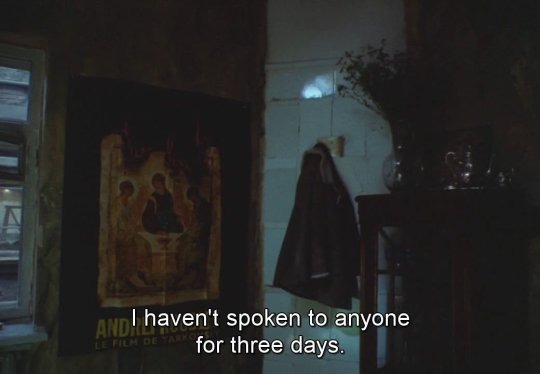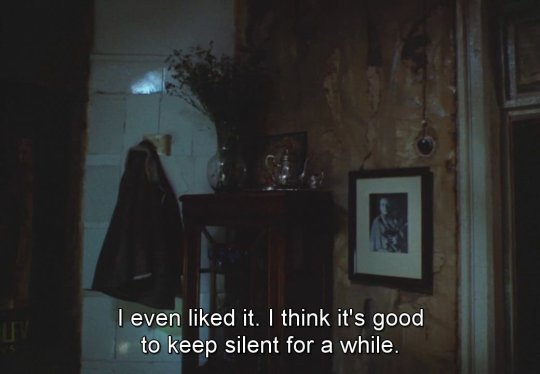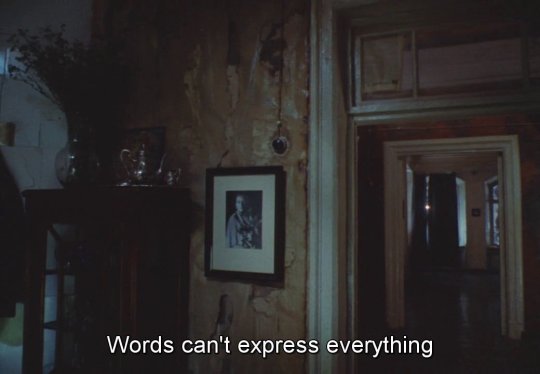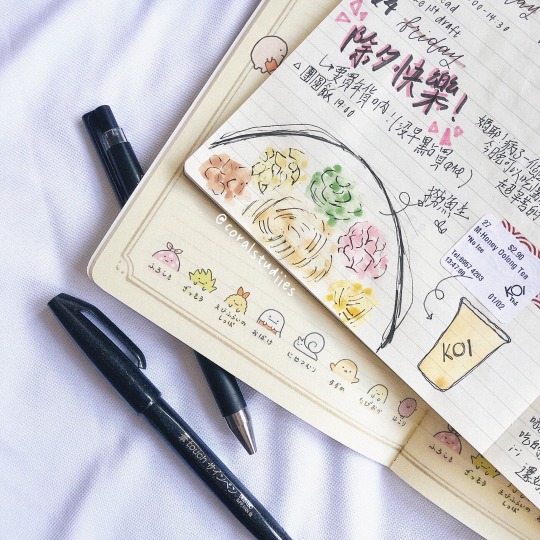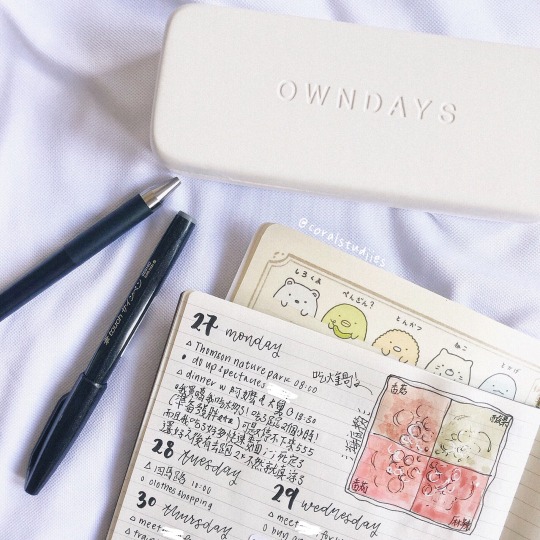Text
Study Habits for Better Health
The 10-10-10 Rule for Eye Health
This is especially important for when you are using an electronic device to study as you tend to blink much less when using an electronic device in comparison to using analogue materials.
This can easily result in dry eyes, eye strain from blue light, and can, over time, eventually encourage the elongation of the eyeball which results in shortsightedness,
Every 10 minutes, take a 10 second break from looking at the screen by looking at an object that is at least 10 feet (approx. 3 metres) away from you
Personally, I find that it is most beneficial to look out a window at the environment around me to give my eyes relief from artificial light and to look at objects that are further away
If you do not have access to a window or an object far enough, looking at the furthest object you can find works well too
You can remember to do this by setting reminders, making a mental note while keeping an eye on the clock, or by incorporating this habit with the 10 minute planning technique
This helps with being more mindful of how much time you spend looking at a screen as well as monitoring how much time you have been working
Additionally, taking just a few seconds to look away from your screen allows you to be more conscious of your surroundings and to take stock of how you feel mentally and physically
I find that this habit has drastically improved my eye health and has reduced my stress when working
Taking a moment to step back from my work to focus on something within my environment prevents me from feeling overwhelmed by the work I'm doing
By removing myself from the situation, I allow myself to have an outsider's perspective and logically analyse how much I have left to do
Sometimes, when you're completing many tasks or large tasks, it feels like you're in a terribly huge pile of work but taking a step back allows you to regain control and say "It's only 3 tasks, I can do this"
Yoga Blocks, Textbooks, Pillows, or Variation for Spine Health
Often times, many of us tend to slouch or hunch over whilst studying or working. This consistent incorrect posture puts strain on your spine which can lead to inconvenient neck, shoulder, and back pain.
It is crucial to maintain correct and comfortable posture to ensure that our spine is in good health to allow us to work and go about our daily lives in comfort.
While sitting at my desk, I like to place a yoga block, a small textbook, a firm pillow, or a similar object perpendicular to my lower back and my chair
This instantly improves my posture by pushing me to sit upright rather than slouching or hunching over my desk
It is important to be lightly holding the yoga block or book perpendicular to the chair's backrest rather than leaning on the object
Heavily leaning on the object may pinch the spine and do more harm than good
Lightly holding the object makes your back muscles work consistently to make you sit upright which strengthens the back muscles and works to improve the overall alignment of the spine
This position must be comfortable, neutral, and feel natural
Another way of protecting your spine, as well as your whole body, is to work in different positions
Instead of the traditional work position of sitting at a desk, you could try standing, laying down on your front, or even sitting on your calves to work
Varying the positions in which the body is stationary for long periods of time prevents tension from building in specific areas which may lead to pain or cramping at a later stage
This also encourages the strengthening of the smaller muscles that assist in maintaining these positions
On occasion, I even like to study or watch lectures while holding a yoga position or stretching to keep my body in healthy condition
Pillows placed on your seat or behind your back can also help in protecting your spine from cramping or muscle soreness from sitting on a hard surface for prolonged periods of time
This option seems very simple but it can make the world of a difference in your comfort as you study
Maintaining Your Hand Health
Your hands are one of the most crucial components of your body. When studying, you use your hands to write, draw, type, and investigate. It is always important to take care of every part of your body but your hands need particular care.
When you are writing, ensure that your neck, torso, shoulders, arm, and hand are in a natural, comfortable, and neutral position
There should be no tension in your body and you should be sitting upright to prevent you from tiring easily
If you need to, rest your wrist on a small, plush object such as a a mousepad's wrist pad, a small cushion, a soft pencil case, or a folded piece of cloth
There is no single correct way to hold a pencil but there is criteria to help you find your personal optimal grip
You should be able to see exactly what you are writing without any of your fingers obstructing your view
Your hand should feel comfortable, controlled, and relaxed as you write
Your writing should be efficient, economic, and fluent
Using this criteria, my own pen grip is where my thumb, index, and middle fingers are the only fingers that hold and control my pencil while my ring and pinkie finger rest on my writing surface for support and mobility
When you are typing, your hand joints are vulnerable to strain due to the constant impacts of your fingers striking the keys
Even if your taps on the keys are gentle, this continuous movement can still strain the joints
Ensure that your wrist is relaxed and has a comfortable form of padding to rest on if you need to
Typing with all of your fingers helps distribute the force and movement of typing which results in less strain on each finger but learning this does take time and effort
With any form of using your hands, the most important health care for your hands is to stretch them
The simple act of stretching your hands greatly relieves muscle tension which assists in preventing the development of any ailments
Stretching your hands also improves mobility and assists with fine motor control to allow more precise and stable hand movements
The ideal stretches for the hands include extending your arm whilst turning your palm to the ceiling and gently pulling your four fingers downwards; gently pulling and rotating the thumb towards your upper arm with your palm facing inwards; clenching and unclenching your hands; wiggling your fingers; and interlocking your fingers and rotating your palms downwards to face away from you whilst extending your arms forward, then moving them above your head
You use your body as a vessel to gain knowledge from your physical environment.
Take good care of your body and it will take good care of your mind.♡
Education should always improve your mental and physical health.

2K notes
·
View notes
Text
THIS STUDYING THING WORKED WITH ME!!
I don't usually study a lot. Like I'd sit down for the whole day on my desk and get so little done, sometimes I even get nothing done at all, but today I weirdly did a lot... Since I knew my finals will be in a week, I sat down with one of my "most worrying" college mates and we planned out the whole week's study plan so we can get the most done a week before the exam. Yesterday was a bit messy as I didn't really have a day plan, so I decided I won't fall for the same shiz again Before I slept yesterday, I planned today's study schedule, and it worked because I knew there was a lot of breaks that allowed me to watch anime and and read a lot of my book and text my friends back without being in a hurry, and when I'd finish before the time I set, I'd add this time to my break. the study plan/ schedule: 7:00/ 7:30 wake up 8:30 : 10:30 study session 1 10:30 : 11:00 break 11:00 : 12:30 study session 2 12:30 : 2:00 (pm) make food and eat (brunch) 2:00 : 4:00 study session 3 4:00 : 4:30 break 4:30 : 5:00 study session 4 (more of reading and organizing my thoughts on the part I'll study next) 5:00 : 7:00 make food and eat dinner 7:00 : 8:30 study session 5 8:30 : 9:00 break notes on that: -study sessions can be replaced by assignments/ revising/ doing homework or a research or anything - you should literally get better eating habits than mine, I'm not so healthy, I eat 2 meals only also and I don't usually have breakfast but I'd get snacks or yogurt or something light or some drinks in between - before I sit down to study I make sure I have all the tools needed so I don't get up (the notebooks, textbooks, planner, sticky notes, laptop, pens, highlighters, a bottle of water, a cup of something -so I won't get up to make something to drink- snacks, tissues, phone if needed) -keep a note beside you and when you remember anything that you wanna do in your break write it down there -more tips (that I didn't use much of today but helps me a lot) : =setting a timer =listening to songs or music or something (when I'm down I play la la land's sound track) =playing a movie/ cartoon or anything that you know well by heart so you wouldn't be so focused on it (actually worked- I did it before an exam) =changing the place of studying (bed, balcony, kitchen, living room, at a friend's place, in a coffee shop, anywhere) =video calling a friend or someone: you don't have to be studying the same thing =keeping up with a friend to see what you both finished and what is left and give each other a push =remember that progress is more important that perfection =if you are tired you can just read the lesson and underline/ sort out the ideas in your head =it's ok to not feel motivated, but know that if you waited for motivation it will never come .. also you can watch a motivational video if it works with you =online study groups can be effective -breaks (this is how I used my breaks): =replying to certain texts =checking on some people =reading =listening to music =planning the next study session =watching anime/ an episode of anything if its a long break =stretching or some kind of work out idk =spending time with family (in my case I don't recommend much) =walk around =clean/organize your room / do a chore =spend it on your hobby =learning a new language =15/20 mins nap =write down your thoughts
752 notes
·
View notes
Text
Study Motivators That Work
The 3 Minute Rule
When you have a task that you don't want to complete, just get started and keep going for 3 minutes. If you still don't want to complete the task after 3 minutes, stop and start another task
This method can be very challenging during the initial stages of trying it
When you procrastinate, you tend to find something else to do first to dodge the main task at hand
This rule forces you to immediately avoid any deviation from completing the task for 3 solid minutes with the option to stop after those 3 minutes
Discipline plays a crucial role in this motivation technique as starting the 3 minutes requires you to overcome procrastination
Something that helps in this process is trying to slightly mentally detach yourself from the situation to have an objective view on it
You need to look at the situation and acknowledge that you have the freedom to stop the task after 3 minutes if you truly cannot complete it and that you absolutely must start the task immediately
Often times, I keep going once I start which results in significantly improved productivity
Flexibile Schedules
Often times, I plan out the perfect study and work session with my tasks and times detailed to the second
However, sometimes, life gets in the way of these plans and I'm forced to reschedule everything
Something like this can be extremely demotivating, especially if your day revolved around your very detailed plan
To help solve such issues, there are 2 options for 2 different scenarios
The first option is to prevent the situation from occurring at all
Extremely rigid and detailed plans are very easy to disrupt
Preventing the situation would be done by outlining more flexible study and work plans that can be done at most times and don't rely on strict timings (I will post another article on creating a flexible and functional study schedule)
The second option is how to move forward if you do find yourself in a situation where your study plans have been disrupted and you're demotivated
In this instance, the first step is to list the topics you need to cover and sort them from most important to least important
Estimate how much time each topic will take and look at how much time you have available
Evaluate if the time you have available is adequate to completely cover all of your listed topics
If not, choose as many topics with the greatest priority that will be able to be completed within your available time
Remember, these steps should be completed within 5 minutes at most to prevent you from losing any more time
There's always a plan for every situation. It just needs to be found.
Justify It
If you truly feel like there's no reason to compete the task, find a reason
If the task is important enough for you to lament over it, it's certainly important enough for you to complete it as soon as possible
Clear your mind of any frustration and just relax
Think of what the purpose of the task is
Do you need to complete an assignment that will be a part of your final grade?
Do you need to complete a report for your job?
Will this benefit you in the future - near or far?
If you need to study, what is your end goal?
When I hesitate with my studying, I always remind myself that what I'm learning now will one day help me improve as a doctor
Once you identify a reason, act on it and complete the task
The reason will help you sense that what you're doing has meaning and purpose, making the task less of an inconvenience and more of a duty
Knowledge is always valuable.

4K notes
·
View notes
Text
How to Handle Having TOO MUCH To Do
So let’s say you’re in the same boat I am (this is a running theme, have you noticed?) and you’ve just got, like, SO MUCH STUFF that HAS to get done YESTERDAY or you will DIE (or fail/get fired/mope). Everything needs to be done yesterday, you’re sick, and for whatever reason you are focusing on the least important stuff first. What to do!
Take a deep breath, because this is a boot camp in prioritization.
Make a 3 by 4 grid. Make it pretty big. The line above your top row goes like this: Due YESTERDAY - due TOMORROW - due LATER. Along the side, write: Takes 5 min - Takes 30 min - Takes hours - Takes DAYS.
Divide ALL your tasks into one of these squares, based on how much work you still have to do. A thank you note for a present you received two weeks ago? That takes 5 minutes and was due YESTERDAY. Put it in that square. A five page paper that’s due tomorrow? That takes an hour/hours, place it appropriately. Tomorrow’s speech you just need to rehearse? Half an hour, due TOMORROW. Do the same for ALL of your tasks
Your priority goes like this:
5 minutes due YESTERDAY
5 minutes due TOMORROW
Half-hour due YESTERDAY
Half-hour due TOMORROW
Hours due YESTERDAY
Hours due TOMORROW
5 minutes due LATER
Half-hour due LATER
Hours due LATER
DAYS due YESTERDAY
DAYS due TOMORROW
DAYS due LATER
At this point you just go down the list in each section. If something feels especially urgent, for whatever reason - a certain professor is hounding you, you’re especially worried about that speech, whatever - you can bump that up to the top of the entire list. However, going through the list like this is what I find most efficient.
Some people do like to save the 5 minute tasks for kind of a break between longer-running tasks. If that’s what you want to try, go for it! You’re the one studying here.
So that’s how to prioritize. Now, how to actually do shit? That’s where the 20/10 method comes in. It’s simple: do stuff like a stuff-doing FIEND for 20 minutes, then take a ten minute break and do whatever you want. Repeat ad infinitum. It’s how I’ve gotten through my to do list, concussed and everything.
You’ve got this. Get a drink and start - we can do our stuff together!
98K notes
·
View notes
Text
This is a big, giant list of Youtube tutorials that will teach you all the basic life skills you need to know in order to be a functional adult. There are a lot of important skills that aren’t included in this list, but this should be enough of a basic guide to get you started and prevent you from making a total mess of yourself. Happy adulting! Household Skills:
How to unclog a toilet without a plunger
How to fix a blown fuse
How to fix a leaky faucet
How to clean soap scum from your tub and shower
How to escape from a house fire
How to make a budget and stick to it
How to sharpen a knife
How to clean a self-cleaning oven
How to clean red wine stains from carpet
How to clean blood stains from fabric
How to clean grease stains from fabric
How to do a load of laundry
How to iron your clothes
How to test your smoke detectors
Cooking Skills:
How to tell if produce is ripe
How to know if food is expired
How to properly sanitize a kitchen
How to cook an egg
How to make rice
How to make pasta
How to put out a kitchen grease fire safely
How to use a gas stove
How to use a convection oven
How to cook meat safely
How to use a stand mixer
How to use kitchen knives properly
How to make mashed potatoes
How to make grilled cheese sandwiches
Health Skills:
How to stop bleeding
How to treat a burn
How to do CPR (on an adult)
How to do CPR (on a child)
How to do CPR (on a baby)
How to help someone who is choking
How to save yourself if you are choking alone
How to read a nutrition label
How to treat frostbite
How to recognize when someone is having a stroke
How to maintain a healthy sleep schedule
Mental Health Skills:
How to calm down during a panic attack
How to help someone who is suicidal
How to meditate
How to stop self-harming
How to recognize problem drinking
How to choose a therapist
How to deal with disappointment
How to cope with grief
How to raise your self-esteem
Relationship and Social Skills:
How to apologize
How to cope with a breakup
How to accept criticism
How to deal with bullying
How to argue in a healthy way
How to ask someone out
How to break up with someone
How to recognize an abusive relationship
How to rekindle a damaged friendship
How to speak in public
Job Hunting Skills:
How to tie a tie
How to write a resume
How to write a cover letter
How to dress for a job interview (for women/femmes)
How to dress for a job interview (for men/masculines)
How to properly shake hands
How to nail a job interview
Other Skills:
How to sew on a button
How to hammer a nail
How to change your oil
How to put gas in your car
How to jump-start a car
How to pick a good password
How to back up your files
How to write a cheque
200K notes
·
View notes
Text
oct 12th


Today was sooooo productive. Now it's getting late and I just finished reviewing a few things, I'm feeling satisfied and proud of myself.
#get motivated#stdyblr#stdyspo#study blog#study notes#studyblr#schedule#study aesthetic#study motivation
2 notes
·
View notes
Photo
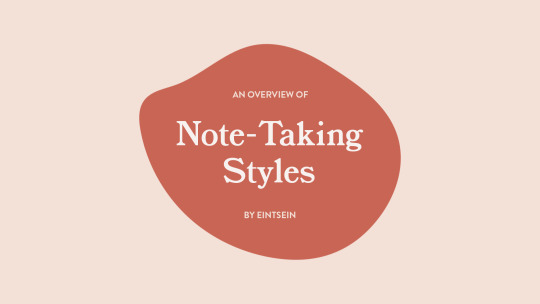

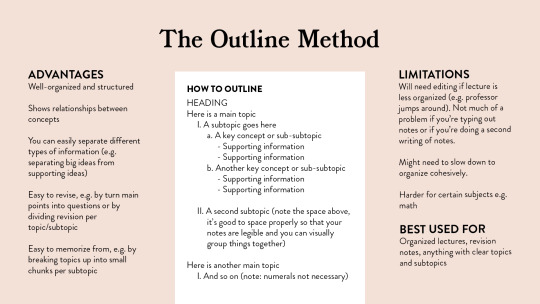
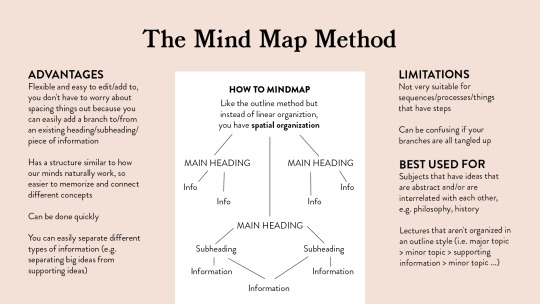

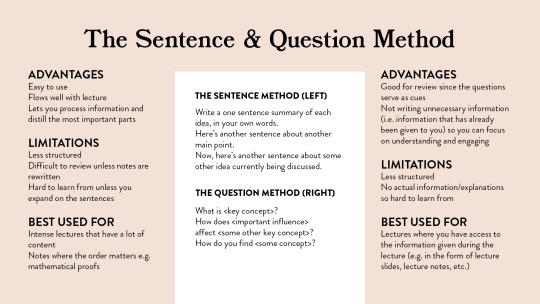
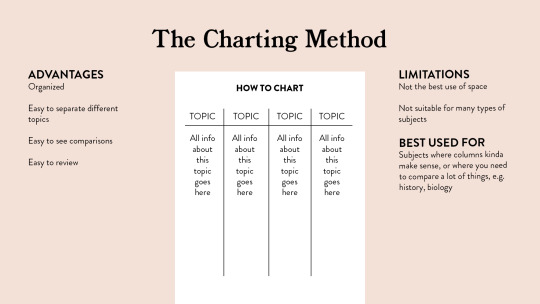


An Overview of Note-Taking Styles
Note-taking is one of the most essential skills a student should master. It allows you to record and review information to be used in the future. But what’s the best way to do so? Here’s an overview of note-taking styles that can help you maximize your learning!
56K notes
·
View notes
Text




[022/100 days of productivity]
•open for better quality•
pubblic speaking is one of my greatest fears, so i 100% owe my grade to my notes and how effective they were (and spacial thanks to my cat that helped me relax afterwards)
78 notes
·
View notes
Text
oct. 10th


It's evening already, I love the chilly breeze with the vanilla candle scent, annnnd my presentation project is almost done. Nice way of spending the weekend 🧸💕
#study motivation#study aesthetic#study blog#study notes#studyblr#study space#study tips#studyspo#study hard#stdyblr#stdyspo#forest app#get motivated#motivation#motivateyourself
0 notes
Text
oct. 9th


While reviewing my syntax notes I can't stop thinking how I still have one more week until finals are over!! It's hard to keep focused...
#study notes#study blog#studyblr#stdyspo#schedule#stdyblr#study aesthetic#study motivation#linguistique#syntax#syntaktis#get motivated
96 notes
·
View notes
Text
8 Things to Remember in 2017: Minimalist Journey
1. Brands Don’t Define You
2. Having More Doesn’t Make You Better
3. Obtain More Knowledge Through Experience
4. Buy What You Need, Not What You Want
5. Find Yourself, Be Yourself, & Love Yourself
6. Consumerism Is a Conscious Choice, Be Mindful
7. Reduce Distractions, Focus on Who & What Matters
8. Keep It Simple.
578 notes
·
View notes
Text
Hello! I’m not exactly new to studyblr, but it’s my first time posting here... I’m also getting started with Notion’s organization system because I want to go minimal soon and let go of paper and plastic supplies mostly! I’ve tried organizing my university tasks first, and it’s incredibly effective, it helps me to not forget any details nor dates! 🌟
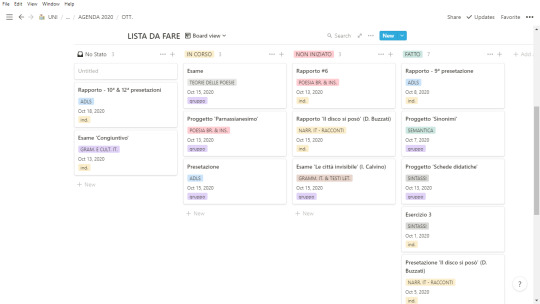
6 notes
·
View notes
Photo

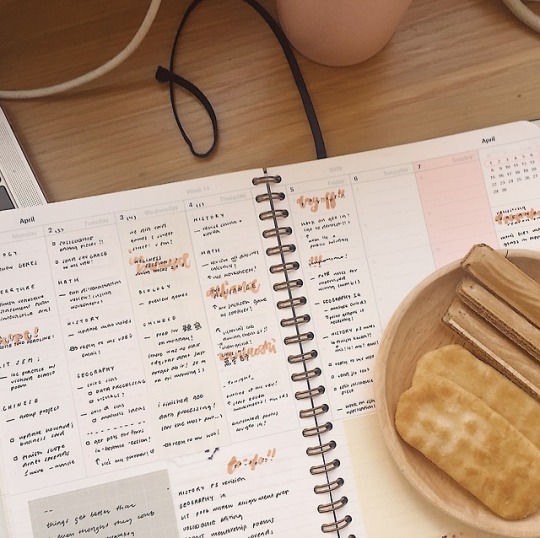
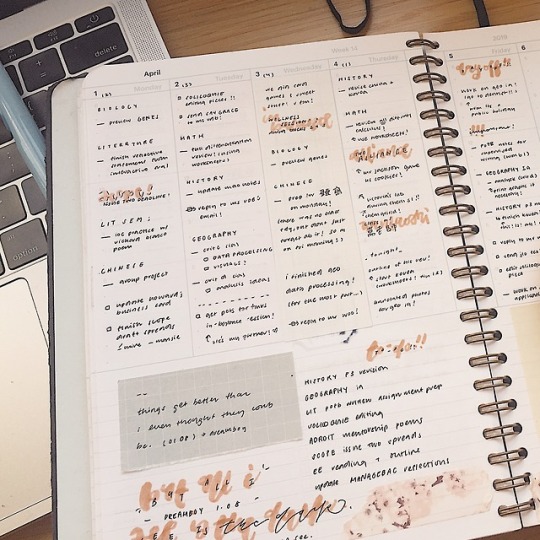

april 8th, 10:33 pm took these in my favourite co-working space !! u kno i dont think i’ve actually posted photos of my mossery planner before huh ! i’m so excited for this week to be over and to finally be on break !! my geo ia is due tomorrow night so ! let’s stay strong for that !! stay safe everyone and remember to take healthy breaks when you’re working !! c:
find me on instagram at acataemic !!
12K notes
·
View notes
Photo

Press Ctrl+F or ⌘F to do a quick search!
bookboon // for accounting, business, economics & finance, engineering, IT & programming, languages, marketing & law, natural sciences, statistics & mathematics (+ career & study advice, strategy & management)
booksee // for arts & photography, biographies & memoirs, business & investing, computers & internet, cooking, entertainment, health, history, home, law, literature & fiction, medicine, references, religion, science, sports, travel, and other categories
bookstacks // for popular classics
boundless // for accounting, algebra, art history, biology, business, calculus, chemistry, communications, computer science, economics, education, finance, management, marketing, microbiology, music, physics, physiology, political science, psychology, sociology, statistics, U.S. history, world history, writing
california learning resource network // for mathematics, science, history
ck-12 // for elementary math, arithmetic, measurement, algebra, geometry, probability, statistics, trigonometry, analysis, calculus, earth science, life science, physical science, biology, chemistry, physics, sat exam prep, engineering, technology, astronomy, english, history
college open textbook // for anthropology & archeology, art, biology & genetics, business, chemistry, computer science, economics, engineering & electronics, english & composition, health & nursing, history, languages & communication, law, literature, math, music, philosophy, physics, political science, psychology, science, sociology, statistics & probability
Keep reading
81K notes
·
View notes
